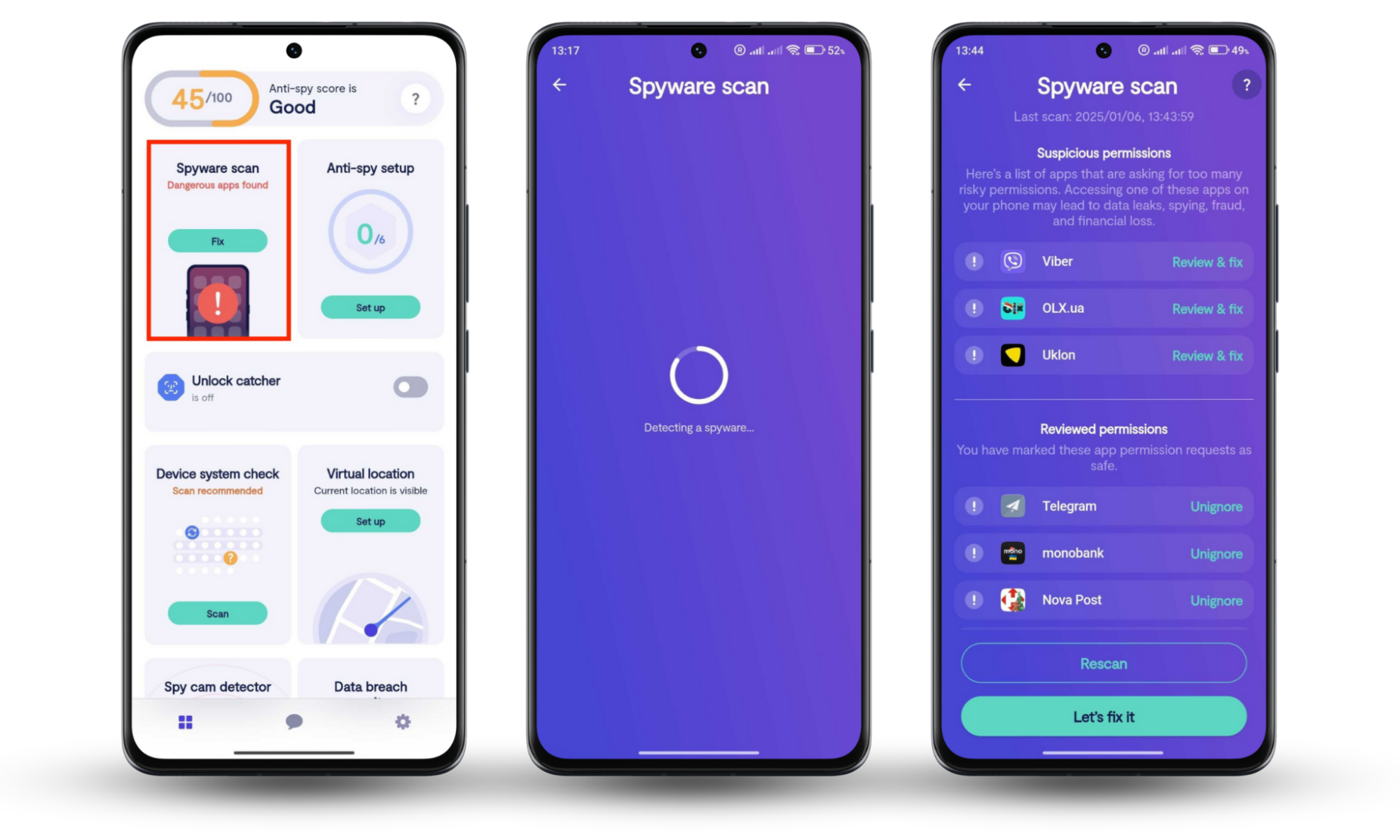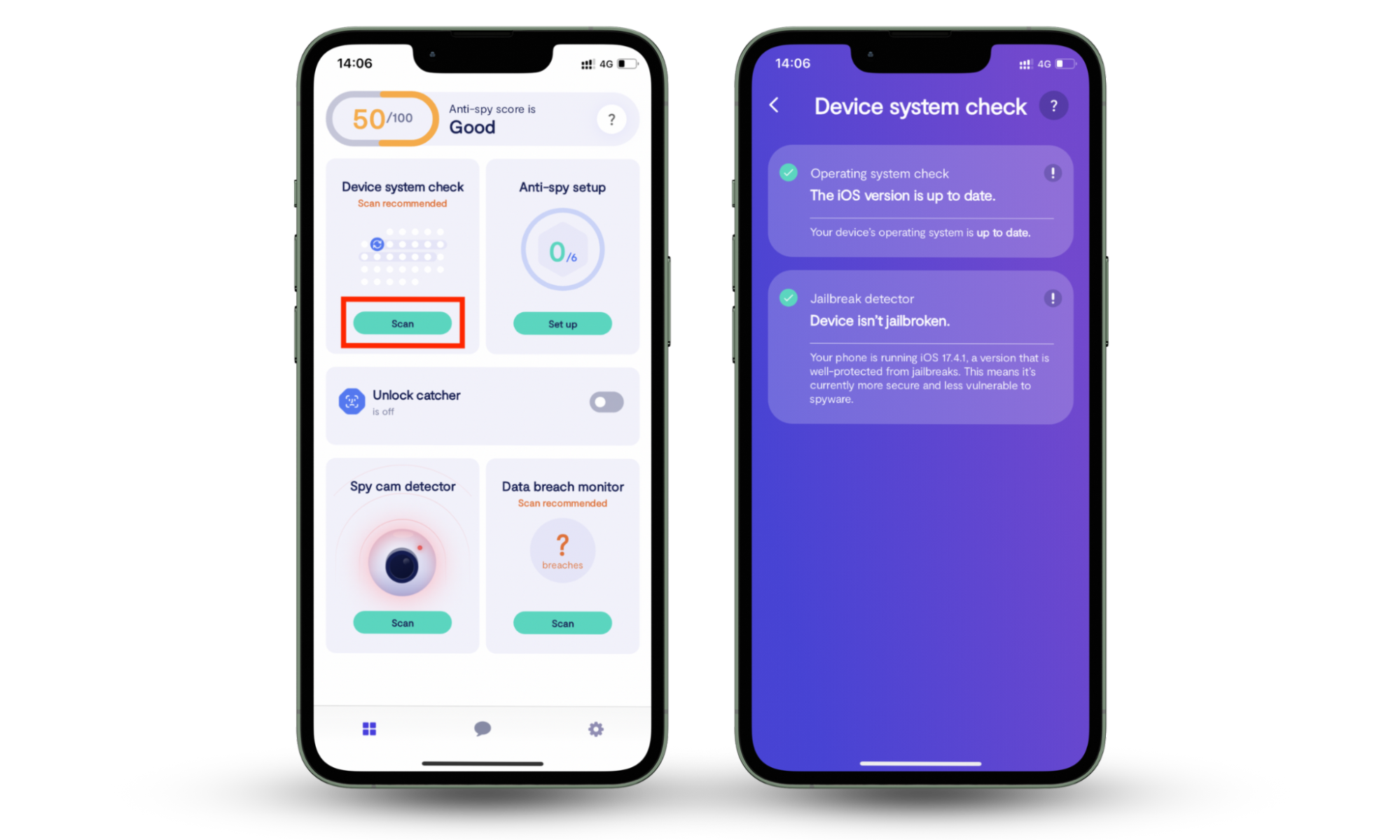Table of contents
- Who can see your search history?
- Operating systems
- Wi-Fi network administrators
- Internet service providers (ISPs)
- Websites
- Search engines
- Apps
- Hackers
- Governments
- How can you protect your privacy?
- Cloak your IP address
- Can my boss see what I’ve searched on company Wi-Fi?
- Other Means of Online Protection
- Final Thoughts
Who can see your search history?
Despite how insignificant you may think your browser history is, there are still plenty of companies and parties interested in collecting your data and harvesting it for their benefit. Below is a breakdown of who is tracking your internet activity and what purpose they get from storing it.
Operating systems
Your operating systems for your devices and phones will have access to the websites that you visit, your social media logs, and your email list. Depending on your geolocation settings, if enabled, your operating systems will also have access to your location.
The law requires your operating system to provide you with a full report of any data collected by them, if requested. This can be very useful for you to see what they are storing and what data is available to them.
Wi-Fi network administrators
Whether you are using a public or private Wi-Fi network, the admin will be able to see every site you visit, the videos you are clicking on, and any social media activity you log while using that network. This includes while you are at work, so remember who can see the websites you visit.
A VPN will help encrypt your personal data and prevent third parties or hackers from opening your data should they gain access to the network’s data.
Internet service providers (ISPs)
Can your internet service provider see your history? Yes, your ISP has full visibility of the websites you visit, the contacts you are emailing, and your social media activity. Depending on what sites you visit, they will even have access to certain health and financial data. Check your local laws to see how long they can store this data, as some ISPs can hold onto this data for up to one year.
Hiding your IP address is a useful way of avoiding any of the data collected by the ISP being traceable back to you individually.
Tip
Learn how to browse without being tracked by ISPs in our guide
Websites
Some websites will utilize cookies to track your traffic and activity logged on their websites. This helps the company behind the website tailor your viewing experience personally to you so that you have a more streamlined experience and display ads more relevant to you.
Disabling cookies and opting out of websites tracking your data for personalized ads is a good way of preventing your information being sold on by websites to third parties.
Search engines
Google, Bing, Ask, and other search engines will have access to your website history and search histories each time you access a site through their provider. Google accounts will track your data each time you access a site using your Google account to collect your preferences for third-party advertisement recommendations.
If you are worried about your search history and other personal data being collected, try DuckDuckGo. This search engine stands out from the rest as it refuses to participate in data collection at all.
Apps
If you enable your location services on your device for certain apps, then they will automatically gain access to your location. As well as location services, Apps will often have access to your account information and email addresses.
Go into your settings menu and individually assess what permissions are being granted to your apps on your phone. Some Apps won’t need access to all the permissions they ask for to still function efficiently so be sure to turn off any permissions you don’t want to share with the app.
Hackers
Speaking of criminal activity…hackers will use underhanded tactics to try and breach your account security and gain access to your browser history, login info, financial data, and other sensitive data which can be used against you.
Malware protection and a VPN are a great combination to fend off hackers from your personal data. Your best defense against hackers is preventing them from gaining access in the first place, but should they breach your antimalware software, your VPN will encrypt your data and make it inaccessible to them.
Governments
Private investigators, law enforcement, and government officials can see your search history by asking your Internet Service Providers for your browsing data. This browser data is often collected by the government when wanting to prevent a crime or track criminal activity.
Use a VPN to disguise your IP address and avoid any of the data you leave behind online being traceable back to you.
How can you protect your privacy?
With all these prying eyes on your internet history, you may be left feeling a bit uneasy about how vulnerable your data actually is. But don’t worry, as I might have the perfect solution for you. Our cybersecurity experts created Clario Anti Spy to help online users regain control over their digital safety. Our mobile app offers tailored features for both iPhone and Android.
For Android users, we created a Spyware scan feature. It performs a full scan of your mobile device, identifying spy apps and apps requesting suspicious permissions that might be tracking user activities and gathering their data while working in stealth mode.
Here’s how to start with Clario Anti Spy’s Spyware scan:
- Download Clario Anti Spy on your Android.
- Set up an account.
- Go to Spyware scan and tap Fix.

For iPhone users, we've devised a Device system check feature. It checks whether your device has been jailbroken and if it runs on the latest OS with updated security patches.
Here’s how to start with Clario Anti Spy’s Device system check:
- Download Clario Anti Spy on your iPhone.
- Set up an account.
- Go to Device system check and tap Scan.

We have also put together a list of the top tips and tricks on how you can protect yourself while you browse online.
Cloak your IP address
Your IP Address is essentially the digital fingerprint you leave behind that can be used to identify you on the webspace. This is why it is so important to disguise or hide your IP address when using your internet browser. It is much harder to trace an individual if you cannot identify their IP address.
Take a look at the list below of the different ways you can disguise your IP address and stop people from seeing what you search on Google:
Use Proxy server
Proxy servers are used to avoid geographical barriers such as content region locks. While a proxy server will hide your IP address from websites, it doesn’t encrypt your data being shared with websites which may still leave you vulnerable to external parties collecting and harvesting your data.
Use Tor browser
The Tor browser is a browser that provides its users with a safe and secure internet experience. Especially for those wanting to browse with anonymity, Tor sends all your online traffic via a worldwide network of servers and adds a layer of encryption to your data. While you can gain access to the dark web while browsing with Tor, you will likely feel a much slower connection due to the enhanced encryption Tor upholds.
One tip if you plan to use the Tor browser is to combine it with a VPN to add an extra layer of protection. Users have reported that the “exit nodes,” or the last server your traffic passes through, can be targeted by hackers with the intent of stealing your data traffic. A VPN can prevent this data from being accessible should you pass through a compromised exit node.
Use a VPN
Not only does a VPN disguise your IP address and replace it with a new untraceable IP address, but it also encrypts your data while using the internet browser. This prevents third parties from being able to access it should they try to steal it.
Can my boss see what I’ve searched on company Wi-Fi?
Ever wondered who can see your mobile data history? If you are surfing the web on someone else’s network, it is important to understand exactly what they can see. Much like a network admin, the owner of a Wi-Fi network will have full access to everything you do online whilst you’re connected to their network. Next time you are bored at work, remember that your boss can see your website search history, including on your mobile phone, if you connect it to the Wi-Fi network.
Save yourself the embarrassment of trying to explain to your boss why you are playing Facebook games or doing your Amazon shopping on company time instead of working.
Other Means of Online Protection
Although a VPN is a great starting point for protecting your private data online, it is not the only measure you can take. There are more tips and tricks you can do to prevent your data from being collected online without your consent. Take a look at the tips below and add an extra layer of protection to your online browsing session:
- Use a browser designed with privacy in mind. Tor is only one of many different browsers built with a priority on privacy. You may also want to check out Brave and Firefox.
- Adjust your browser’s privacy settings. Head into the settings menu of your online web browser and make sure you look at the different available options for your privacy and set them according to your needs.
- Disable any cookies in your browser. While you are in the settings menu, make sure you have disabled any cookies that are turned on by default by your web browser.
- Delete your browser history. Don’t hold onto your history for longer than you need to, make sure you set aside time on a routine basis to go and wipe your internet history from your web browser.
- Use an alternate alias for email sign-ups. Your personal email address can often contain a lot of personal information about you, don’t be afraid to sign into your web browser under an alternate alias and protect your name from being linked to your web history.
Final Thoughts
While there are some legitimate uses for third parties wanting access to your personal data and web history, it is important to minimize the risk of it falling into the hands of the wrong people.
Stay informed about what data is being stored and what the purposes are for that data being held so that you don’t discover some unanticipated surprises down the line. Reading the privacy statements of companies and setting personalized settings on your web browsers will help keep you on top of what information is being tracked.
Your online privacy is paramount and Clario Anti Spy offers powerful features to protect it. Use Device system check (iPhone) to check for signs of jailbreaking, which compromises Apple’s stringent security protocols. Spyware Scan (Android) will conduct a thorough examination of your device to identify suspicious apps that could potentially exploit your data.


